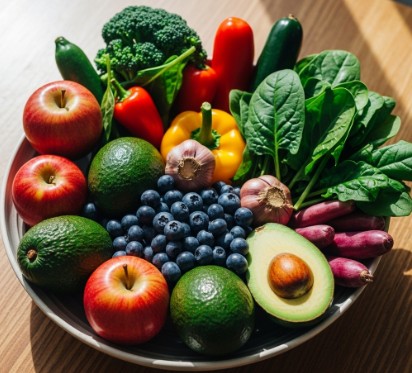
Cucumbers are more than just a crunchy addition to your salad or a soothing spa treatment for your eyes. This humble green veggie is packed with goodness that can do wonders for your health. But like all good things, moderation is key! Let’s dive into the amazing benefits of eating cucumbers and what to watch out for if you go overboard.
Top 10 Reasons to Crunch on Cucumbers
Here are ten fantastic ways cucumbers can boost your well-being:
- Keeps You Hydrated: Cucumbers are about 95% water! This makes them an excellent way to stay hydrated, especially on hot days or after a workout. Proper hydration is crucial for everything from energy levels to brain function.
- Packed with Nutrients (Low in Calories!): Don’t let their watery nature fool you. Cucumbers contain important vitamins and minerals like Vitamin K, Vitamin C, potassium, and magnesium, all while being incredibly low in calories. This makes them a guilt-free snack.
- Great for Weight Management: Because they are low in calories and high in water and fiber, cucumbers can help you feel full and satisfied. This can prevent overeating and support your weight loss or maintenance goals.
- May Help Lower Blood Sugar: Some studies suggest that cucumbers might help reduce blood sugar levels. While more research is needed, it’s a promising benefit, especially for those managing diabetes.
- Good for Your Tummy (Digestion): The fiber and water content in cucumbers can aid digestion and help prevent constipation. A happy gut means a happier you!
- Freshens Your Breath: Chewing on a cucumber slice can help combat bad breath. The water content cleanses your mouth, and some say it helps get rid of odor-causing bacteria.
- Supports Heart Health: The potassium in cucumbers can help regulate blood pressure, which is a key factor in heart health. Their fiber content may also contribute to healthy cholesterol levels.
- Could Strengthen Your Bones: Vitamin K is essential for bone health, and cucumbers are a good source of it. Getting enough Vitamin K can help with calcium absorption and bone strength.
- Antioxidant Power: Cucumbers contain antioxidants, which are substances that help fight off harmful molecules in your body called free radicals. This can protect your cells and may reduce the risk of certain diseases.
- Promotes Healthy Skin: The hydrating and anti-inflammatory properties of cucumbers aren’t just for spa days. Eating them can contribute to healthier, glowing skin from the inside out.
Too Much of a Good Thing? Potential Side Effects of Excess Cucumbers
While cucumbers are generally safe and healthy, eating a very large amount might lead to a few uncomfortable issues:
- Digestive Discomfort: For some people, eating too many cucumbers can lead to gas, bloating, or an upset stomach. This is often due to a compound called cucurbitacin, which can cause indigestion in sensitive individuals.
- Increased Urination: Because cucumbers are so high in water, consuming a large quantity can lead to more frequent trips to the bathroom. This is generally harmless but can be inconvenient.
- Allergic Reactions (Rare): Though uncommon, some people might experience allergic reactions to cucumbers, such as skin rashes, itching, or swelling. If you notice any of these symptoms, stop eating cucumbers and consult a doctor.
- Potential for Wax Coating Concerns: Conventionally grown cucumbers are often coated with wax to preserve them. While food-grade wax is generally considered safe, some people prefer to buy organic or peel their cucumbers to avoid it.
- Blood-Thinning Interaction (with high Vitamin K): If you are on blood-thinning medication like warfarin, suddenly increasing your intake of Vitamin K (found in cucumbers) could interfere with your medication. It’s always best to discuss significant dietary changes with your doctor if you’re on medication.
The Bottom Line: Enjoy Cucumbers Wisely!
Cucumbers are a fantastic, refreshing, and healthy food to include in your diet. Their numerous benefits, from hydration to nutrient provision, make them a smart choice for most people.
Just remember, like with any food, balance is important. Enjoy your cucumbers in salads, sandwiches, infused water, or as a crunchy snack, but listen to your body and don’t overdo it. That way, you can reap all the wonderful benefits without any of the potential downsides. So, go ahead and enjoy the cool, crisp goodness of cucumbers




